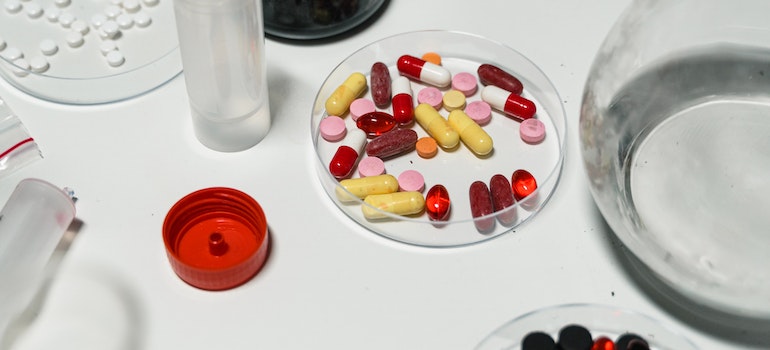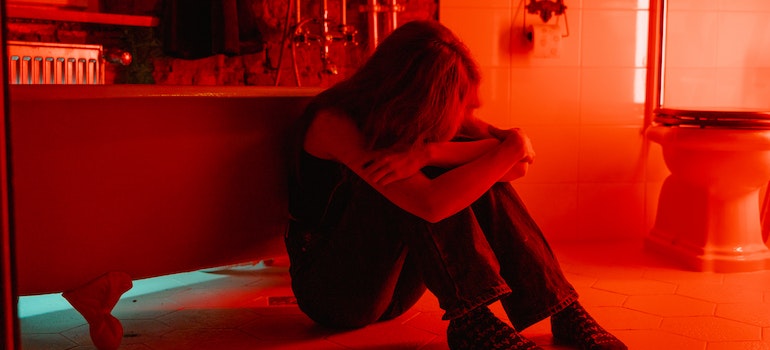Even if you’ve never been to rehab yourself, you probably have an idea of how it goes. Maybe you’ve seen the AA meetings in TV shows or heard about the discomfort of detox from someone who’s already been through it. But here’s the thing – rehab looks different for different people at different times and in different rehab centers in West Virginia. While it’s never easy, it doesn’t have to be uncomfortable, unpleasant, or ineffective. There are plenty of options when it comes to rehab Marietta OH; you just have to find what works for you.
Why is it important to have options when it comes to rehab?
Every individual person who struggles with addiction has their own unique story. The reason why they started using, the substances they are using, how long they’ve been using, and why they want to stop – it all varies from person to person. Similarly, how someone responds to treatment is also highly individual. What does wonders for you may not work at all for someone else. And what works for them may be similarly ineffective in your case. There is no magical one-size-fits-all cure for addiction. Instead, individualized treatment tailored to fit every person’s unique needs is the best approach.

To be able to provide such individualized treatment, a rehab center Marietta OH needs to first offer different types of treatment. This is why it’s important to have options in rehab: a variety of options allows for personalized treatment that can be tailored to suit every individual who abuses substances at every stage of recovery. If options didn’t exist, rehab wouldn’t work for most people.
The different addictions treated in rehab Marietta OH
The most obvious difference among addicts is often the substance they are addicted to. While all addictions share some common characteristics, which substance one is using can make a big difference. Addictive substances differ in the effects they have on the body, the effects they have on the brain, the level of addictiveness, legal status and accessibility, and more. A person who struggles with drinking will be facing different issues from a person who regularly uses cocaine. For this reason, rehab centers must provide a variety of treatment options for different substances.
Alcohol addiction treatment
Legal and widely available, alcohol is one of the substances that causes the highest number of addiction cases worldwide. Because the consumption of alcohol is socially and culturally acceptable (and in some situations even encouraged), many people don’t notice they’ve become addicted until it’s too late. By the time they realize they have a problem, there is no way to stop without enrolling in alcohol rehab Marietta OH.

There is a number of reasons why alcohol addiction and the recovery from it is unique:
- alcohol is legal and easier to obtain than most drugs
- in most places, it is legal to advertise alcohol
- it is common for alcohol to be served in public (for example: in restaurants, at sporting events, at family dinners, and at parties)
- consuming alcohol in public (provided the setting is right) typically doesn’t raise many red flags, even when that consumption is excessive
- alcohol often serves as a “gateway drug” and can lead to addiction to other substances
All this makes recovery harder in many ways. It’s easy to develop an addiction but not so easy to spot it and after rehab, avoiding potential relapse triggers entirely is almost impossible. Specialized alcohol rehab centers in WV will address these alcohol-specific issues during your treatment, and better prepare you for long-term recovery. That is why it is important to have the option of attending rehab for alcohol addiction specifically.
Drug addiction treatment
When they think of addiction, most people think of drug addiction, specifically addiction to illegal drugs like cocaine and heroin. But while those certainly are things that some people need drug rehab Marietta OH for, they are far from the only substances one may require treatment for. Addiction to prescription painkillers or stimulants can be just as devastating. However, each substance has a unique effect on your physical and mental health as well as your work and social life. So it’s important to receive treatment for exactly the type of addiction that you are suffering from. For this reason, most drug rehab centers in WV will offer a variety of options, including:
- benzo addiction treatment
- heroin rehab WV
- cocaine addiction rehab WV
- fentanyl detox in WV
- meth rehab
- opiate addiction rehab WV
- stimulant addiction treatment

Opioids have a very different effect from stimulants and benzos can change your life in drastically different ways from cocaine. The reasons why you use these different substances will differ, the way to obtain them will differ, and the consequences to your physical and mental health will differ. So it’s important to address the specific issues that come with the type of addiction you suffer from. For that to happen, rehab centers in the Marietta OH area have to offer a variety of options for treatment if they are to help everyone in need.
The different levels of care available in rehab Marietta OH
Not everyone who attends treatment at a rehab center Marietta OH requires the same amount of support. Some people only need to see a therapist once or twice a week; others need frequent therapy sessions and medical supervision. It all depends on a number of factors. The substance you are addicted to, how long you’ve been addicted, which stage of recovery you are at, potential other diagnoses, and simply personal issues can all affect the level of care you require in order to achieve sobriety. To ensure that everyone can receive the treatment they need at every step of their recovery journey, rehab centers provide several options regarding levels of care.
Inpatient treatment
The most intense treatment that you can get in a drug rehab Marietta OH is residential or inpatient rehab. If this is the program you opt for, you’ll be staying at the rehab center 24/7. This will put you in a controlled environment with limited access to the outside world. There are several benefits to this, including lower risks of obtaining substances, less exposure to potential triggers, and change in environment, all of which are supposed to help you focus on recovery. Since residential treatment facilities in WV are staffed by both medical professionals and mental health experts, you’ll have easy access to any type of care you may need. Medical supervision, in particular, is especially important during the detox phase.

The highest level of care is typically reserved for the most serious cases of addiction. If you’ve been abusing substances for a long time or you are addicted to a particularly dangerous and addictive drug, you’ll probably be a good candidate for inpatient treatment. Complicating factors such as a dual diagnosis or a lack of a support system at home can also be a reason to attend a residential program. This type of treatment often serves as the first step in recovery. Consequently, it is rarely the only treatment you will attend; rather, after completing an inpatient program, you’ll be expected to transition into outpatient treatment.
Outpatient treatment
The difference between inpatient and outpatient treatment is where you spend your time while not in therapy. When you are in a residential program, you live at the treatment facility. As a participant in an outpatient program, you’ll live at home and visit the treatment center to attend therapy sessions and meetings. How often you attend therapy will depend on the program because not every alcohol rehab Marietta OH will offer the same treatment intensity. Typically, outpatient treatments fall into one of three categories:
- partial hospitalization program West Virginia – A step down from an inpatient program, partial hospitalization provides the highest level of care that an outpatient program can. You’ll spend as many as 30 hours a week in treatment in 4-6 hour sessions three to five times per week. During this time, you’ll also have access to medical care. Although they are a type of outpatient treatment, PHPs are typically seen more as a transition step between inpatient and outpatient programs.
- intensive outpatient program West Virginia – With 2-4 hour sessions three to four times a week, intensive outpatient treatment provides more support than standard outpatient programs. It includes both group and individual therapy, as well as medication administration and management when needed. It is suitable for milder cases of addiction and later stages of recovery as well as those who have a strong support system at home that they want to maintain a lot of contact with.
- weekly meetings – A typical low-intensity outpatient program provides minimal support of 1-2 hours of care once or twice weekly. It works more as an aftercare program that helps you maintain your sobriety through either therapy or group sessions based on the 12-step program. As such, it is really only suitable for those who have already achieved sobriety.
Aftercare
Addiction recovery is a long-term battle. For many people, treatment alone is not enough – they require support from friends, family, peers, and professionals to maintain their sobriety. To assist with that, a reputable rehab center Marietta OH will offer aftercare planning and programs. Addiction aftercare is a way to ensure continued recovery support after treatment is completed. Although it is not a type of treatment in and of itself, it has been proven to greatly improve long-term success rates and lower the risk of relapse.

Aftercare looks different for everyone. To develop your own personal plan for it, you’ll work with your case manager and therapist while still in treatment. They’ll be able to suggest further steps based on what you struggle with most.
The different types of medications used in rehab Marietta OH
It may seem counterproductive for people in a drug rehab center Marietta OH to be using drugs to control their addiction. However, medication assisted treatment can be very beneficial during recovery in some cases. While not everyone will benefit from (or even qualify for) MAT, those who do report:
- less intense detox symptoms
- fewer and less intense cravings
- lower risk of relapse and overdose
- higher chances of surviving an overdose
- better odds at long-term recovery from opioid addiction
Six medications have been approved for use in the treatment of substance use disorder. But not all of them are suitable for every situation or every person in recovery. In fact, it is often necessary to test out different medications, medication combinations, and dosages. For that reason, it is beneficial to have options when it comes to medical detox. That way, everyone who may benefit from medication assisted treatment can receive the medical care that works for them.
The different approaches to therapy in rehab Marietta OH
Therapy is the backbone of addiction treatment. It addresses the mental and emotional aspects of addiction that physical detox cannot fix. In therapy, you’ll work on finding out what caused you to start abusing substances, what triggers you to drink or take drugs, and most importantly – how to cope with everyday stress in healthier ways. But if you’ve ever been in therapy, you’ll know that it’s not as straightforward as just talking to any mental health professional. Instead, everyone responds to different things. For this reason, different approaches have been developed to healing the mind.

The most common types of therapy employed in addiction rehab are:
- dialectical behavior therapy for addiction – The most common type of therapy in rehab is dialectical behavior therapy or talk therapy. It can be employed in both group and individual settings. The goal is for you to identify problem behaviors, find ways to improve on them and gain the confidence needed to control your emotions enough to implement behavioral changes. Most everyone participates in this type of therapy during recovery. What is more, almost everyone benefits from it too.
- a CBT treatment plan for substance abuse – Another common type of therapy in rehab is cognitive behavioral therapy. This approach posits that substance abuse is a consequence of negative thought patterns: a triggering event combined with disordered thinking surrounding that event causes a person to abuse substances. The goal is, then, to identify these unhealthy thinking patterns. Once you are aware of them, you can work on trying to change them. Ultimately, you should end up developing a better way of coping than substance abuse. CBT is widely employed in rehab because of its effectiveness.
Experimental therapy for treating substance abuse disorder
While most people will respond to DBT and CBT for addiction, not everyone can recover from those treatment plans alone. For this reason, it is important to offer others forms of therapy as well. These can replace traditional approaches to therapy, or they can supplement them. Whatever the case is, having a variety of options to choose from allows you to tailor addiction therapy to your needs. So if talk therapy is not working, you may want to try:
- art therapy for addiction, where you get to creatively express your emotions
- eye movement desensitization and reprocessing which retrains your brain away from negative thinking patterns by tracking eye movements associated with decision making
- motivational interviewing that helps people with chronic relapse problems find the will to keep fighting
Not every alcohol rehab center Marietta OH will have every type of therapy on offer. Sometimes, popular alternative therapies like animal therapy are simply not easily accessible. Other times, it is not possible to get experts in a new therapeutic approach to administer treatment. But in most cases, you will have at least a few options to test out. This will help you and your therapist to find the most effective treatment approach for you personally.
Dual diagnosis treatment
The overlap between substance abuse and other mental disorders is significant. People who suffer from mental illness often use substances to cope with their symptoms, and the consequences of addiction can often lead to mental illness. When this happens, it’s important to treat co-occurring disorders together. What makes dual diagnosis treatment so effective is that it addresses not only the substance abuse but also how it interacts with, affects, and is affected by mental illness. In turn, both your addiction and your mental health will improve.

Most reputable rehab centers in the Marietta OH area will offer treatment for dual diagnosis. This treatment typically focuses on the most common co-occurring disorders: anxiety, depression, and PTSD. However, it’s important to have other options as well for those who suffer from personality disorders, eating disorders, schizophrenia, and other mental illnesses.
Exploring your options for rehab Marietta OH
When the time comes for you to seek out drug rehab Marietta OH, you’ll want to consider all options. That way, you can choose the best treatment for your needs. The more suitable the treatment you get, the more likely you are to achieve long-term recovery. So what should you take into account when looking for a rehab center?
Do you have obligations preventing you from committing to an inpatient program?
The primary factor in determining whether you go into inpatient or outpatient treatment should always be the level of care you require. However, other factors are at play too. If, for example, you are the sole provider for your family or have people dependent on you to take care of them, you may not be able to join a long-term residential treatment program. When this is the case, you can enroll in an intensive outpatient program instead. Alternatively, you can look for a residential program that allows a lot of freedom and is conveniently located so that you can continue to fulfill your obligations while in treatment.
Before you make the decision, however, decide on your priorities. A job is an obligation, too, after all. But it is one that is not worth more than your health. So if it comes down to choosing whether you will enroll in a residential program that can save your life or continue working instead, choose to work on yourself first. Once you’re better, you’ll find another job, and you’ll be better at it too!
How far can you travel?
When you live in a small town, you have to face the possibility that you won’t have access to all the amenities of a big city. Unfortunately, this does include healthcare providers. So there’s a chance you won’t be able to find a rehab center Marietta OH suitable for you. Instead, you may need to travel out of town for the best treatment. While this certainly sounds like an inconvenience, your recovery is worth the sacrifice. So expand your search to rehab centers in the entire surrounding area.

You do, however, have to be practical. If you choose a residential program in another state, will you be able to relocate there temporarily? Will your family and friends be willing and able to visit? And once you transition into an outpatient program, will you still be able to attend it regularly when it’s several hours away? Take into account factors like owning a car, the price of gas, and the availability of flights or other transport options. Then decide on the farthest distance you can feasibly travel for rehab. Search for treatment options within that distance.
Does your insurance cover addiction treatment?
Addiction tends to take a toll on your finances. So it is perfectly understandable if you are worried about being able to afford treatment. The good news is that most insurance plans, including Medicare and Medicaid, cover mental health. This means that you can use insurance for addiction treatment provided you have the right plan and find an in-network alcohol rehab center Marietta OH. If this is something that matters to you, you should look into rehab centers that accept your insurance. Contact your insurance company if you’re not sure where to look.

Can you get an evaluation from a medical or mental health professional?
At the end of the day, you don’t really know what the best addiction treatment for you is. This decision is best left to professionals. But not knowing exactly what you’re looking for can make it difficult to find a suitable drug rehab center Marietta OH. After all, how can you make an informed decision if you’re not sure what your options are? This is why you should seek an assessment from a doctor or a therapist. If you’re already seeing one, talk to them about your addiction. If you’re not, contact the nearest rehab centers and ask if they can help you.
Have you had experience with rehab before?
Addiction recovery is rarely a straightforward process. Between 40% and 60% of addicts relapse after treatment. So this may not be your first time going into rehab. If that is the case, then you already have some experience with treatment. This experience can provide valuable knowledge. What did you like about the last rehab center you were at? What didn’t work for you? Would you like to go back to the same treatment or give something new a try? Knowing the answers to these questions can help you narrow down your options.
Preparing for rehab Marietta OH
Once you’ve explored your options and decided on a rehab Marietta OH, it’s time to start preparing for treatment. What you need to do will depend on the type of program you’re in. If you’ve joined a residential program, then start packing and figuring out your transportation options. If you’ve opted for an outpatient program, then work the treatment sessions into your calendar and plan out your visits to the rehab center. Finally, remember to prepare mentally and emotionally for the road ahead. It is normal to be scared and nervous, but you shouldn’t let that stop you from working toward your recovery. Talk to someone you know and trust if you need help – your friends and family are there to support you!



